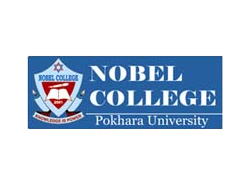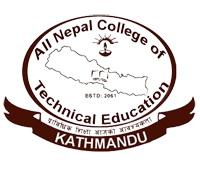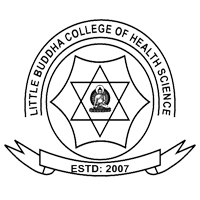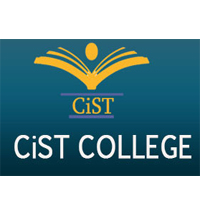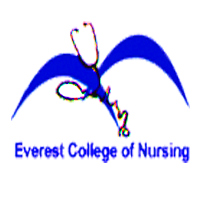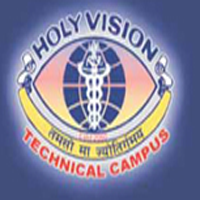Overview
NAMS College (National Academy for Medical Sciences (NAMS) was Founded in the year 2001 A.D., National Academy for Medical Sciences, the first pioneer college in Health Education of Nepal, is the intellectual outcome of a group of distinguished and eminent medical/health personalities, who visualized a desperate need for a College, which can be acknowledged as an Educational Center of Excellence, a co-educational Total Health Education System with every conceivable facility that would meet the high expectations of responsible and ambitious students, a distinctive Academic Institution capable of generating not only competent health professionals with high academic excellence and distinctive technical skills to meet the global challenges, but also a new breed of responsible, caring, patriotic, productive and upright citizens with superior spiritual and moral values.
NAMS aspires to look to the future and contemplates developing innovative ways of providing the nation's citizens with greater access to health education. In addition, it emphasizes creative, scholarly, and recreational activities that support & enhance its academic programs.
MISSION
The mission of the college is to prepare its students for a successful productive future, make the world a better place by generating outstanding knowledge with high ethical values and moral codes, and give something of value back to the society

OBJECTIVES
The College aims to become renowned for its distinctive curricula and academic excellence. Besides providing superior quality health education, it shall always strive to make learning more effective, purposeful, and productive. Clearly stated the objectives of the College are as follows:
- To produce health professionals a new breed of competent health professionals with global perspectives and possessing all-around intellectual abilities and skills, and capable of applying their knowledge, wisdom, and expertise, in handling each and every kind of public health situation.
- To generate visionary health leaders with adequate skills in analytical techniques, strategic planning & formulating, decision making, and problem-solving.
- To inculcate in the students a sense of discipline and social responsibility, and motivate them to become creative, responsible, ethical, productive, and caring citizens, who are sensitive to the needs of their fellow humans.
- To gear the country’s effort in improving the health status of the people by producing a wide range of qualified human resources in the health sector.
- To inculcate in the students a sense of discipline and social responsibility, and motivate them to become creative, responsible, ethical, productive, and caring citizens, who are sensitive to the needs of their fellow humans.
With the primary objective to generate proficient, qualified, and socially responsible health manpower required to face the challenges of the country in the new millennium, the pursuit of excellence has been the pioneer of its institutional mission and we are committed to providing the health programs that are relevant to health manpower since its establishment. NAMS has teachers who have been awarded scholarships and teaching assistantships to pursue higher studies in reputed universities of the West and have already returned and joined their respective disciplines in the college.
NAMS continued its progress since its inception as a matter of pride and satisfaction to all associated with the college. Various ongoing academic health programs testify to its achievements. NAMS was launched with a vision, and we are moving ahead toward the goal.
NAMS has been effectively producing competent Health Professionals in the areas of general Medicine, Pharmacology, Nursing, and Public Health in affiliation with CTEVT, Nepal, and Purbanchal University (PU), Nepal.
NAMS has highly dedicated and student-oriented faculty members, who would be a group of accomplished scholars and prominent academicians proficient across a range of disciplines. The college shall ensure that its teachers are not confined to the roles of an academician and a trainer, but that each of its faculty members is also a motivator and a guide, capable of generating a cordial but firm relationship based on discipline, trust, sympathy, understanding, respect, care and compassion with their students.
The mission of NAMS College is to prepare its students for a successful productive future, make the world a better place by generating outstanding citizens with high ethical values and moral codes, and give something of value back to society.
NAMS aims to produce health professionals a new breed of competent health professionals with global perspectives and possessing all-around intellectual abilities and skills, and capable of applying their knowledge, wisdom, and expertise, in handling every kind of public health situation. Similarly, NAMS aims to generate visionary health leaders with adequate skills in analytical techniques, strategic planning and formulating decision-making, and problem-solving.
The Academy is conducting a three-year course in Proficiency Certificate level in General Medicine (HA) since its establishment in 2001A.D.(2058 B.S). Effective from 2004 A.D. (2061B.S) the academy has started a three-year course in Proficiency Certificate level Diploma in Pharmacy (DPH). These courses are accredited by the Council of Technical Education and Vocational Training (CTEVT), Nepal Health Professional Council (NHPC) for General Medicine, and Nepal Pharmacy Council (NPC) for Diploma in Pharmacy
Effective from 2005 A.D. (2061 B.S) the academy has jumped its dimension by introducing other two new courses, Bachelor of Nursing (four years) and Bachelor of Public Health (in the beginning three year Course, now four Years with 8th semester. These courses are accredited by Purbanchal University (PU) Nepal, Nepal Health Professional Council (NHPC) for BPH.and Nepal Nursing Council (NNC) for B.Sc Nursing.
Salient Features of NAMS College
-
Resource-Rich Learning Environment: Students have access to an extensive library, including an e-library, ensuring a rich reservoir of knowledge.
-
Modern Educational Facilities: Classrooms equipped with multimedia teaching aids and a dedicated Center for Teaching, Learning, and Evaluation facilitate an immersive learning experience.
-
Supportive Academic Culture: Counseling and guidance sessions, alongside highly qualified and experienced faculty, contribute to an excellent academic atmosphere.
-
Outstanding Academic Achievements: NAMS boasts impressive academic results, underpinned by a healthy, productive educational environment.
-
State-of-the-Art Laboratories: The well-equipped laboratories support hands-on learning and research, fostering a robust research culture within the institution.
-
Comprehensive Student Services: A welcoming canteen and various student support services ensure a comfortable and conducive learning environment.
The College has maintained a sound relationship with the Ministry of Education, Ministry of Health, different Universities, Governmental, non-governmental, and community Hospitals, CTEVT, and respective councils.
The college shall adopt a Valley Development Committee(VDC), as a beneficiary and work in coordination with that VDC providing health facilities and health education based on the community diagnosis practicum and clinical practicum in different governmental, non-governmental and community Hospitals in cooperation with concerned government agencies and Hospitals. Apart from this, the College shall organize charity shows, fetes, and blood donation programs to supplement the philanthropic services.
The Academy has planned to start the course offering the degree of Master of Public Health (MPH), in near future. The academy has not stopped its step here; it has thought a long way to go in the future.
NAMS has highly dedicated and student-oriented faculty members, who are a group of accomplished scholars and prominent academicians proficient across a range of disciplines. The college shall ensure that its teachers are not confined to the roles of an academician and a trainer, but that each of its faculty members is also a motivator and a guide, capable of generating a cordial but firm relationship based on discipline, trust, sympathy, understanding, respect, care and compassion with their students.
From the very beginning, the outcome of the academy has shown its remarkable achievements by giving impressive results in the final examinations of every faculty every year. The number of students standing in the first division is remarkable. In addition, the academy has produced topper students (First position with distinction) in the board of Examination taken by the Council of Technical Education and Vocational Training (CTEVT) and Purbanchal University Board from 2004 to till now.
Admission Guidelines:
Navigating the admission process for higher education can be daunting. At NAMS College, Kathmandu, prospective students are provided with clear guidelines to ensure they understand the requirements for programs like B.Sc Nursing and Bachelor of Public Health (BPH). Here's an overview of the admission criteria and entrance examination details for these courses.
B.Sc Nursing Admission Criteria
-
Academic Requirements: Applicants must have successfully completed their intermediate science or 10+2 (or equivalent) education with Biology, Chemistry, Physics, Math, and English as main subjects, achieving a minimum aggregate score of 50%.
-
Age Requirement: Candidates must be at least 17 years old at the time of application.
-
Entrance Examination: The selection process includes an entrance exam comprising one paper with two sections: English (50 marks) and Nursing Science/Health Science-related major subject area (100 marks). The exam format is multiple-choice questions (MCQs), with a total duration of three hours. To pass the entrance examination, candidates must score at least 50%. However, selection for admission is based on the merit list, ranked in descending order.
Bachelor of Public Health Admission Criteria
-
Eligibility: Candidates aspiring to enroll in the BPH program should have a proficiency certificate in general medicine or any other recognized certificate-level course in health sciences. Alternatively, an intermediate science certificate or ten plus two with biology, securing a second division in aggregate in the certificate final examination, is acceptable.
-
Entrance Examination: The admission process includes an entrance exam conducted every October. The exam consists of one paper carrying a total of 150 marks, divided equally among general sciences, health sciences, and English (50 marks each). The question format is MCQs, and the exam lasts for three hours. To qualify, candidates must obtain at least 50% marks in the entrance examination. Admission is granted based on the merit list, with candidates selected in descending order of their scores.
Preparing for Entrance Examinations
- Understand the Format: Familiarize yourself with the structure of the entrance exam, including the types of questions and subjects covered.
- Study Material: Focus on the main subjects mentioned in the criteria. Use relevant textbooks and review materials that cover the syllabus.
- Practice Tests: Take mock exams to improve your speed and accuracy. This will also help you identify areas where you need more revision.
- Time Management: Develop a study schedule that allows adequate time for each subject, ensuring a comprehensive review before the examination.
Contact NAMS College's administrative office for detailed information on the course, admissions, location, fees, scholarships, facilities, counseling, or eligibility.
Contact Details:
NAMS College
Old Baneshwor, Kathmandu
Phone: +977-1-4566465, +977-1-4569017
Email: [email protected]
Website: www.namscollege.edu.np



